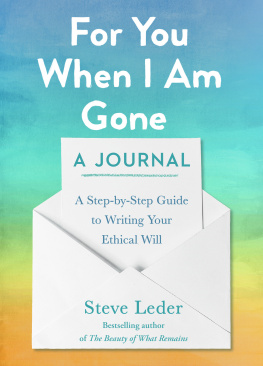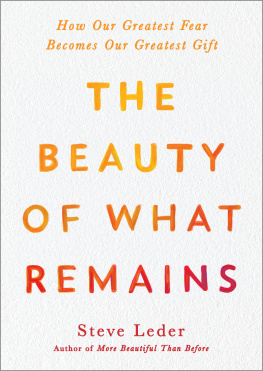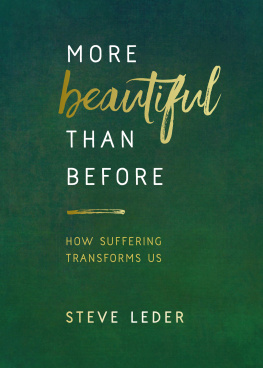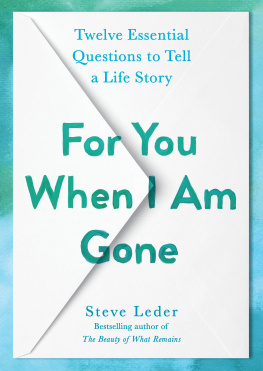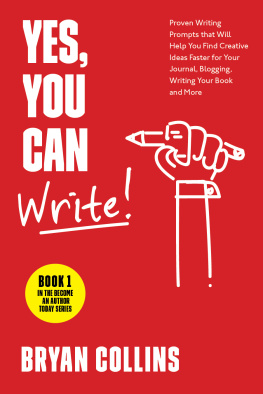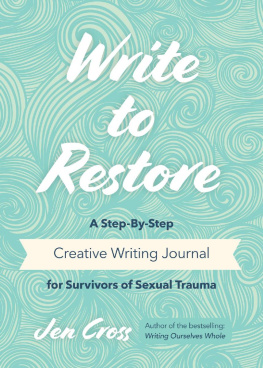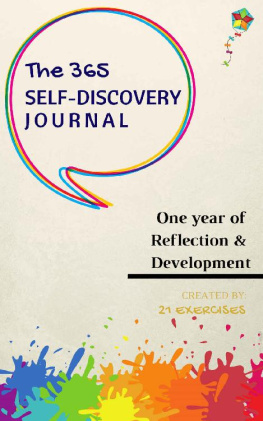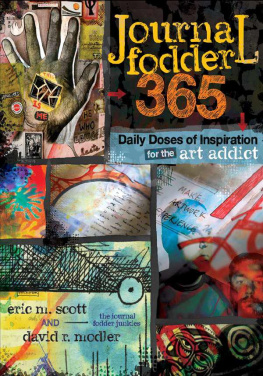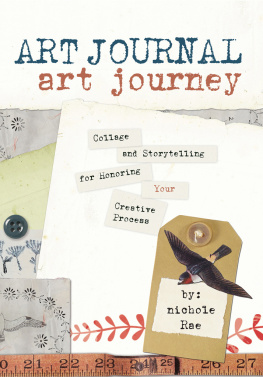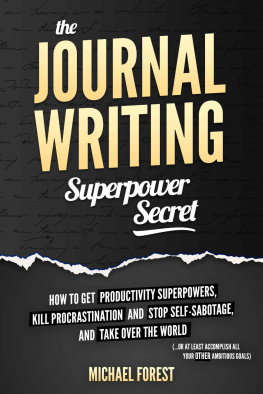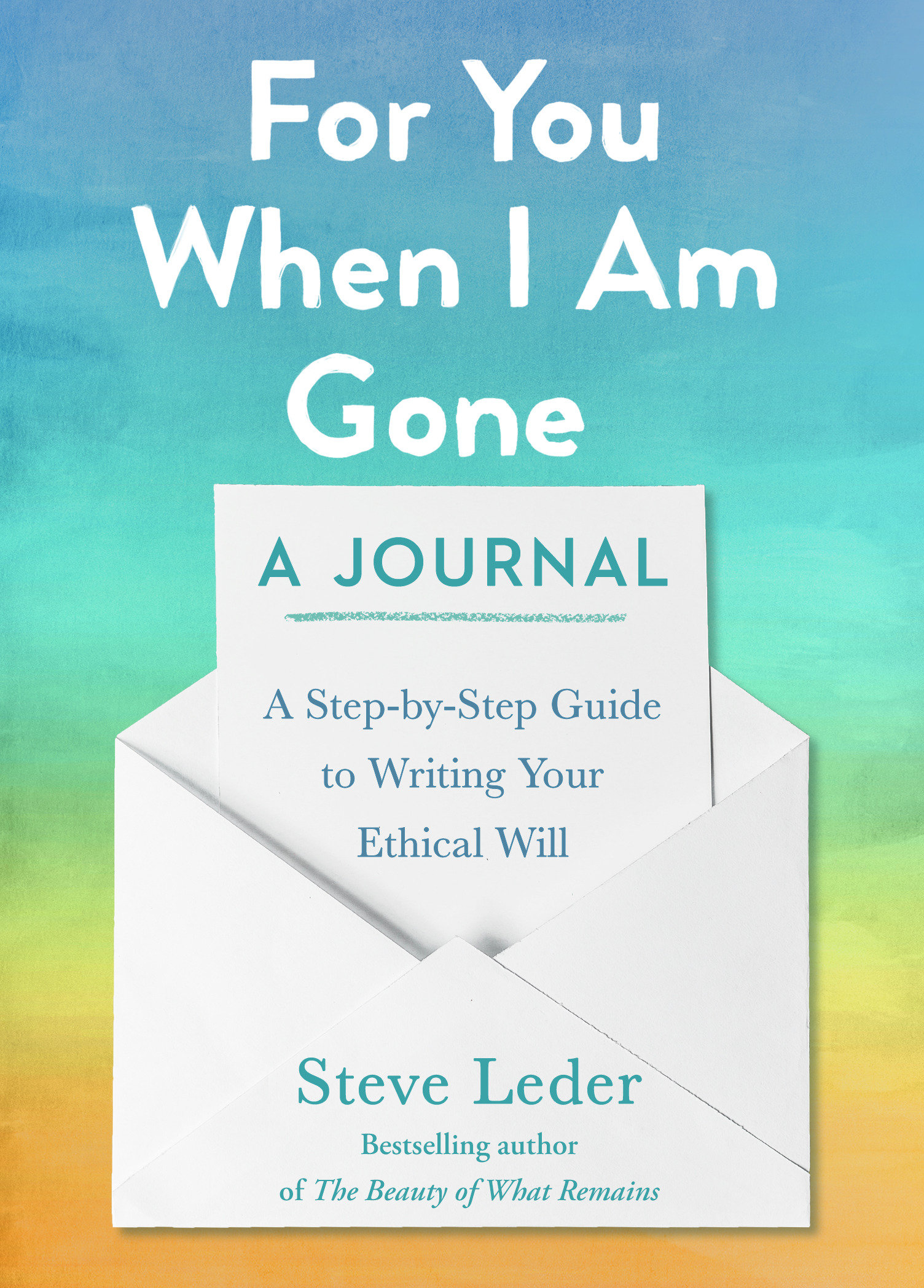ALSO BY STEVE LEDER
The Beauty of What Remains
For You When I Am Gone

An imprint of Penguin Random House LLC
penguinrandomhouse.com
Copyright 2022 by Steve Leder
Penguin Random House supports copyright. Copyright fuels creativity, encourages diverse voices, promotes free speech, and creates a vibrant culture. Thank you for buying an authorized edition of this book and for complying with copyright laws by not reproducing, scanning, or distributing any part of it in any form without permission. You are supporting writers and allowing Penguin Random House to continue to publish books for every reader.
Library of Congress Control Number: 2022937471
Trade paperback ISBN: 9780593421574
Ebook ISBN: 9780593543245
Cover design: Victoria Black and Caroline Johnson
Cover image: (card and envelope) FabrikaSimf / Shutterstock
Book design by Shannon Nicole Plunkett, adapted for ebook by Estelle Malmed
pid_prh_6.0_142058442_c0_r0
Contents
_142058442_
Introduction
How do you do it? people often ask me. How do you sit with family after family when their loved one has died to listen to their stories, to hold their pain, and to help them smile and laugh in the midst of that pain? Doesnt it exhaust you? After thirty-five years and more than a thousand funerals, arent you tired of it all? My answer is sincere and always the same. Exhausted? Yes. Tired of it? Never. Why not? Because every persons life is amazing. Everyone has a powerful, beautiful, bittersweet story. But that story reveals itself only if you ask the right questions in the right order. Revealing the uniqueness and essence of a persons life is an art.
This guided journal will help you tell your own story. It asks the questions I have posed and refined over more than three decades to enable your life, your love, your values, your vulnerability, and your dreams to unfold for your loved ones when you are gone like a flower blossoming in time-lapse photographyextraordinary, exquisite, and astonishing.
People have been writing ethical wills or legacy letters for a very long time to let those they will leave behind benefit from their hard-earned wisdom and their love. The earliest that remains dates back almost a thousand years. And yet, despite ten centuries of examples of people who have written and bequeathed their life lessons, values, and love to their children, grandchildren, other family, and friends, most people dont. Some of us have an estate plan for which we carefully decided how much money, if any, and what stuff our loved ones will inherit when we die. All of that is important. But I have learned over the years that money and material objects are not what your loved ones will want or need the most to help comfort and inspire them when you are no longer there. They want youyour guidance when they are lost, your wisdom when they are conflicted, your laughter and your empathy when they are sad, your forgiveness when they stumble. These matters of the heart are the most precious legacy of your life and no estate plan can ever bestow them upon the people you love. But you can.
We are not all expert writers, but we are experts when it comes to knowing about our own lives. And with some guidance, every one of us can turn that knowledge into a priceless legacy. Ask me to build a coffee table and the coffee table will never materialize. But hand me the pieces and clear directions, andwith a little effort, cursing, a missing part here or there, and a sense of great pride once completedthe coffee table will take shape. With questions, explanations, and pithy, hopefully inspiring bits I selected from hundreds of sermons I have written over the years, this book will guide you to identify and assemble the important pieces of your story. It will hold your hand the entire way, just as I would the loved ones of someone who is gone and did not take the time to write down what they most wanted those they cared about to know. Dont let that someone be you someday.
If you came to this book because you read my last one, For You When I Am Gone: Twelve Essential Questions to Tell a Life Story, great. You already know about ethical wills and why these questions matter and youve gotten a taste of other peoples answers. But perhaps you didnt find time to put the book down and answer the questions for yourself. I hope the space to write in this book will inspire you to do that now. For those who have not read my last book, this one is meant to stand alone, giving you what you need to create an ethical will of your own.
You will be amazed at what pours out of your heart and soul as you wrestle with the questions in these pages. Your honest answers will tell a truth about who and what really matters in your life that your loved ones will cherish for the rest of theirs when you are gone. Lets begin....
CHAPTER 1
What Do You Regret?
We all regret things we have said and done. But most peoples greatest regrets are not the things they have said or done, but the things they failed to do or say. We can enlighten our loved ones far greater by sharing our deepest regrets than by touting our tales of chances taken or battles won. Satisfaction teaches us little, but there is an instructive sting to opportunities missed: the could haves and should haves of our lives. The times we knowingly turned away from love and meaning, challenge and duty, beauty and joy, are hard to forget. If we cannot forget our regrets, if we cannot undo the past, then let us include them in the legacy we leave for the ones we love. Regret requires introspection and honesty; it is a great and wise teacher when we are brave enough to face it. There is no way to create a meaningful life or a meaningful legacy lesson without that courage.
What is your biggest regret and how can your loved ones avoid the same? What do you wish you had done, why, and what will doing those things hopefully bring to your loved ones lives that you missed out on?
Its simple, reallywith friends to tell us when we are wrong, we arrive together at the truth. Without them, truth dies.
The sins of long ago are mostly no different from the sins of today: a little gossip, some arrogance, a half-truth, fraud, anger, narrow-mindedness. In one sense nothing much has changed in twenty centuries.
You would think a rabbi would be secure enough in himself to know that appearances matter little and character, ability, dedication, and passion count for much. But for more than three decades, I have worried about looking the part of the rabbi for you. That meant a closet filled with twenty suits, forty shirts, dozens of ties and shoes and belts from Italy and Paris. I dont know how many hours and how many tens of thousands of dollars or more I have spent over thirty-four years, dressing the part of rabbi. I am going to stay looser when this whole pandemic is over. Less phony, more comfortable, more trusting that each of you knows and sees the real me no matter what I am wearing.
We all make a choice about what we remember. Do we self-righteously remember the wrongs done to us or humbly recall the wrongs we committed ourselves?
Only doubt and humility will heal us. Only doubt and humility make forgiveness possible. Without them, we are lost.

